- Old Draft: Beatles Folk Memory 1970-1995 - December 8, 2025
- Lights are back on. - December 8, 2025
- From Faith Current: “The Sacred Ordinary: St. Peter’s Church Hall” - May 1, 2023
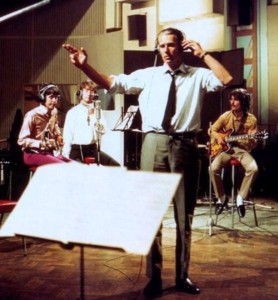
George Martin, rocking out, 1967
David Yearsley over at Counterpunch has a wonderful appreciation of George Martin’s work on the Summer of Love anthem “All You Need Is Love.” Unfortunately Apple has taken down the linked video — maybe they think your momentary frustration will spur a quick purchase of “1+”? Instead of making you think, “Jerks.”
Yearsley writes,
It was only fitting that the fifth Beatle so often out of frame should be the first member of the band to be introduced, if namelessly, to the live world audience. Martin comes off in this quick shot not only as debonair but also as sheepish, like a school boy caught in the act of mischief making. If you watch carefully you can see that his right hand tries surreptitiously to hide something in the pocket of his white suit jacket. To calm his nerves Martin had poured himself a glass of Scotch when the globe’s collective eye turned prematurely to him.
That’s so George Martin; not just that he poured himself a stiff belt, but that his reflexive sense of decorum led him to cover it up. Might be kids watching — it was only 9pm, and this was the Beatles. (Not just “Cold Turkey” was out-of-bounds, but “Wild Turkey,” too.)
Especially to American eyes, George Martin always seemed patrician in the best sense, probably because he wasn’t really a patrician at all. That’s what was behind Lennon’s shameful treatment of Martin after May 1968, not any dissatisfaction with his work (Martin’s job on “Strawberry Fields Forever” should’ve won Lennon’s loyalty for life), but a childish rich man’s rejection of anything that struck him as middle-class propriety. But of the two? It was George Martin who was the real working-class hero — to quote the Vulture tribute: “Despite his outward urbanity he’d come from a poor family, growing up without electricity, or even a kitchen, in a tiny apartment in North London.”
So let’s lift a glass of scotch to a man with great ears — and heart, too.

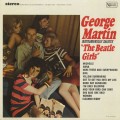
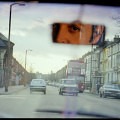
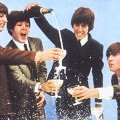



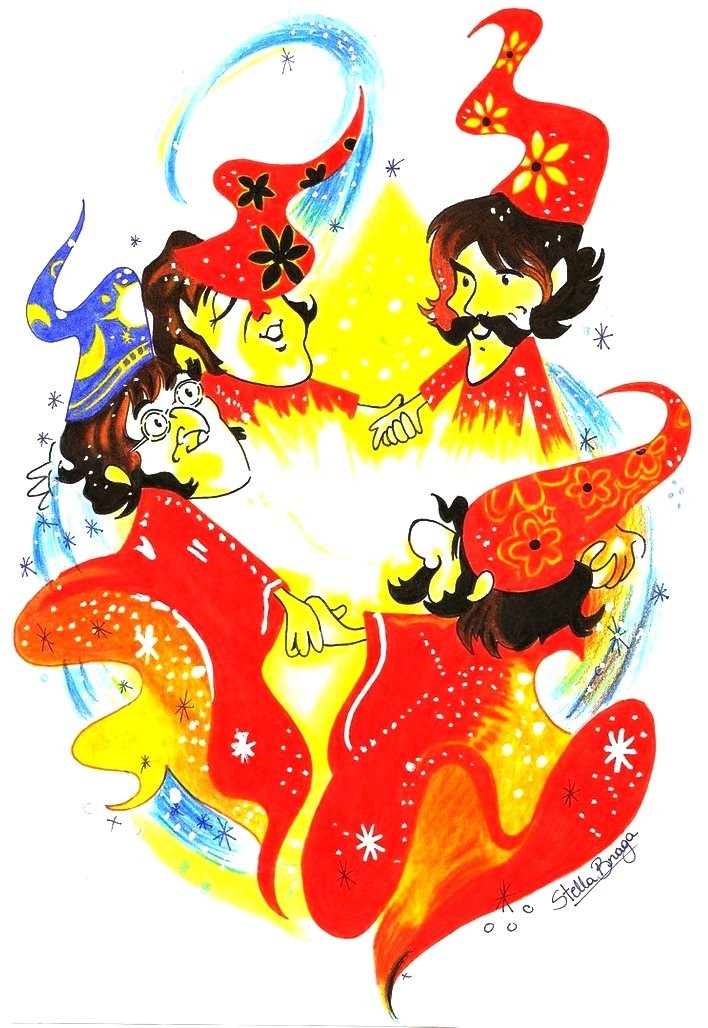

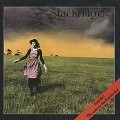



Martin’s job on “Strawberry Fields Forever” should’ve won Lennon’s loyalty for life
Very true. This is why I found it so odd when 1980Lennon said he hated the track and wanted to re-do it. Jack Douglas has tried to explain what John envisioned, but he never goes into details. How the heck does one improve Strawberry Fields?
I liked his orchestral arrangements on the B-side of Yellow Submarine. Talk about painting pictures with sound! George Martin’s orchestral version of the Yellow Submarine theme is so wonderful and magic.
I wonder why he wasn’t chosen to do the orchestrations for the HELP! film? The James Bond intro and classical treatments of Beatle tunes would have been perfect. Ken Thorne did a fine job, but I wonder what Martin would have done with the assignment.
An anecdote from Martin’s later years that resonated with me for personal reasons: He was in an audience to accept some award or another, and student musicians put on a loud show for him. He showed them his decibel meter – it was almost at two hundred. He walked out of the auditorium, telling them they’d all be deaf in a few years if they continued their foolishness.
I find it so interesting that the young George Martin understood profoundly that to achieve any measure of success in the U.K. and be taken seriously, he’d have to change his manner of speech. He removed all trace of cockney from his accent by imitating the BBC announcers. Imagine if he hadn’t; what all those Beatle documentaries would have sounded like?
Martin: “Well, Jawn ‘ad a rough ideea of wot ‘e waunted Strawberry Fields to soun’ loik…”
I didn’t know, until recently (from reading posts here) about Martin’s early life. The story of George Martin and the Beatles has always been portrayed as a kind of The Taming of the Shrew–on one hand, an urbane, sophisticated maestro and on the other, four scruffs from Liverpool. It strikes me that Martin and the Beatles had a lot more in common than we knew, and it probably facilitated that great connection between them.
(Edited to Add: At the risk of betraying my girl crush, can I just say that George Martin was hot? Thanks. Back to your regularly scheduled program.)
For you, Karen.
Wow–great find. He really was a fetching gentleman, in every way.
Yes! He really does deserve the moniker “the fifth Beatle.” Could the Mop-Tops have asked for a better one? Could the world ask for a better human being?
Thank you, George.
One of the things that I think made Martin perfect for the Beatles was his understanding of his own gifts, and his appreciation of the gifts of others. He could appreciate the Beatles’ composing genius and transpose rough ideas (like Paul’s whistling the tune that became “Penny Lane”‘s trumpet line, or John’s wanting to sound like the Dalai Lama chanting from a mountaintop for “Tomorrow Never Knows”) into specific musical arrangements that chimed perfectly with the overall song.
He seems, in the very best sense, transparent: more interested in serving the music than in putting himself forward. A very admirable and rare trait.
I was especially happy to hear this, from John, who we know had in the past mouthed off unthinkingly and said things about George he probably didn’t mean:
[youtube https://www.youtube.com/watch?v=A94GKJ8oPqw?rel=0&w=560&h=315%5D
George Martin always gave good interviews:
“I think the first essentials for any producer are a curious nature and a catholic taste. If his tastes are channeled too much in one direction, then he becomes less of a successful producer because it gives him less tolerance of music. If you get a rock fanatic or a jazz fanatic or a classical fanatic, to a certain extent they’ll be wearing blinders; they won’t see too much on either side of them. That makes them less versatile, it makes them less tolerant, and, to be honest, I think it makes them less musicianly.”
“I like to have a bit of humanity in my music. These days, you can sample and reproduce everything in digital format. But a clinically accurate tempo makes me uneasy, as though I’m listening to a quartz-controlled watch. I like ebb and flow and I like dynamics. I like a bit of randomness in my music, which is what a human being is, after all. A heartbeat isn’t quartz controlled; it varies with our emotions. I think music should reflect that.”
I dunno. Personally, I always liked the “official” Strawberry Fields until I heard the slow and fast versions. Both are superior to the finished product, IMO. So… and I can’t believe I’m saying this, I kinda feel John’s pain where this record is concerned. I mean, it’s hardly George Martin’s fault. But SFF works wonderfully with both a slow, lilting tone AND a panicked, frenetic tone. I feel like it’s least effective in the middle, which is what the single is.
I think this is a perfectly valid preference.
But the thing with *John’s* later criticism of “SFF” is … Martin had done exactly what John had asked him to: spliced together two different versions of the song that were in different keys and had different tempos because John had said he liked the beginning of the one version and the end of the other.
This was back in the day when getting tempos and keys to match was not just a matter of autotuning, of letting the computer handle it. It took ingenuity and inspiration and had to be done by hand – and Martin pulled it off.
Given that set of circumstances, John’s later criticism is particularly hard to credit – it seems particularly mean-spirited. The Beatles spent a *ton* of time working on “SFF” in the studio. If John had wanted a better version, maybe he should have gone back and recorded a better one – better than the 1,799,807 versions they had already recorded.
Paul would have had no problem doing this, and did so with songs like “Ob-La-Di, Ob-La-Da”. They had a perfectly good version ready to go and Paul decided he didn’t quite like it. (Personally, I think the version they released on *The White Album* is far superior to the one Paul didn’t like – that is, I agree with Paul’s decision to re-do it.) Even if the crashing opening piano chord and the giggling and the “thank you” (at the end) and the almost sarcastic lyrical echoes (“(ring!) … (sing!)”) were done with malicious intent, to mock the song, they actually make it, in my view, better. It always sounds to me like they’re having fun – who knows, maybe they were? It all makes it a better song. And Paul must’ve agreed because, if he hadn’t, I’m sure he’d’ve had another go at it – alone, if need be. To me, their effort was worth it because of the result.
So if John didn’t like what GM did with “SFF”, there was always that option: Do it again; see it through until you realize your vision of what the song should be. It is not George Martin’s fault if John decided against doing that.
The final irony is, John was known for wanting to just get it done and get out of the recording studio … yet the one song of his that he made the most noise about not liking is the one he lavished the most time and attention on, Just, in his view, maybe not enough.
In *my* view, they got it just right. Thanks in large part to GM’s efforts.
@Glaven, my unfounded suspicion is that John’s comments on “SFF” come from him not wanting to share any credit for a song that was clearly one of his masterpieces, and clearly very personal to him. I doubt that he had any great problems with Martin’s work — how could he? He knew that he’d asked Martin to do the impossible, and Martin had (as usual) delivered — but just wanted to cover that 1967 version of the song with one that erased any connection with The Beatles. Needing George Martin’s help was beneath him as “an artist.”
Can you imagine a Jack Douglass produced Strawberry Fields with no Paul, George or Ringo on it? Shudder…
I always liked Martin’s piano playing on “Misery” and “Not A Second Time” and also the way he recorded and mixed it.
Me too. He played keys on a ton of early tracks, and his playing always enhanced the music.
I heartily agree about Martin’s keyboard playing. His work on “Roll Over Beethoven” is stellar, and the idea of recording a piano part and speeding it up to create the “harpsichord” effect on “In My Life” is genius. And then there was coordinating the ending chord of “A Day in the Life.”
Oh my God, these chord changes!
https://www.youtube.com/watch?v=qYFLq2Ap_1E
Bob Dylan was right: ” Their chords were outrageous, just outrageous, and their harmonies made it all valid.”
Let’s not forget the reason we’re still talking about the Beatles fifty years later. It’s the songs, the f****g songwriting!
Say what you want about Dylan, the man recognized a good Aeolian cadence when he heard one!
Another thing to be thankful for: that Martin had the incredible smarts to go with his gut and keep the band intact, rather than create a John- or Paul-led backing band. That was kind of revolutionary, considering the era. He was really ahead of his time.
Very true. In the late ’50s, early ’60s it was not uncommon for producer/managers to decide who was in or out of the band.
Norman Petty defaced more than a few Buddy Holly records with his intrusive, heavy-handed piano/organ playing. (See “Think It Over” or “Valley Of Tears”). Petty also took songwriting credit for songs he never wrote, but only played keyboard on. As a result, in 1959 Buddy was struggling so badly financially he agreed to a murderous winter tour in frozen Minnesota/Clear Lake Iowa.
Tom Parker had final say on who was allowed to play on Elvis Presley’s records. We know how that worked out in the 1960s. The “King” of rock ‘n roll became a joke in the music industry.
The Everly brothers were given two beautiful songs to record by Buddy Holly (“Love’s Made A Fool Of You” and “Wishing”) written especially for them, and the Everly’s management said “Nope, you ain’t recording those, he ain’t from our publishing company.”
George Martin deserves so much credit for knowing exactly how to record the Beatles, without ruining them. And for being a man of good taste.
What you say about Buddy Holly’s fate in the recording studio is so true, Sam. I think also of the intrusive background singing on some of Holly’s records — a style that was very common at the time. In addition to knowing what to do with the Beatles, thank God Martin knew what NOT to do with them as well.
Looking at Martin’s career outside the Beatles, and at the former Beatles’ solo careers, it seems clear to me that what happened with the Beatles and Martin in the studio was a synergy that no one in that group could ever replicate. Martin deserves enormous credit for what he brought to the process, but what he created for and with them was driven by the band’s songwriting and sonic conceptions. Like Lennon and McCartney as songwriters, the Beatles and Martin were immensely better together.
That brings to mind the story about the Beatles and their insistence on recording Love Me Do over How Do You Sleep (the latter of which they positively hated). When required to at least give it a run-through, they sung How Do You Sleep so badly (entirely on purpose, mind you), that everyone gave up and let them sing Love Me Do instead. That little episode always gave George Martin a good chuckle.
Karen, wasn’t it “How Do You Do it?” (Unless the Beatles had access to a modified DeLorean with a fusion engine and accidentally set its navigation to “the bitter end of our band”!)
Shit–yes. Don’t know why I typed How Do You Sleep. 🙂
While I am glad the Beatles opted for “Love Me Do”, I still think their version of “How Do You Do It?’ kicks the ever-lovin’ shite out of Gerry and the Pacemakers’ version. Even Lennon’s adding of that “Oo-la-la”, which is not in the Pacemakers’ version, and was perhaps JL’s attempt to undermine the song lyrically, only serves to make it better, to my ears.
It’s amazing: The Beatles just couldn’t suck totally, even when they tried.
I also think GM’s assessment of the tune was correct – it was a guaranteed #1, which is not something the Beatles disputed. They were never “O, man, this’ll never chart!” Their objection was that it was not *them*, not their style.
I think most groups, most people, would have leapt at the opportunity to have a #1 hit. The Beatles turned this one down. They had character. Or maybe just chutzpah! Or maybe those are just two sides of the same coin!
I agree, Glaven. I like the Beatles’ version far better than Gerry and the P.M’s, and like you I think their instincts were right–it wasn’t “them.”